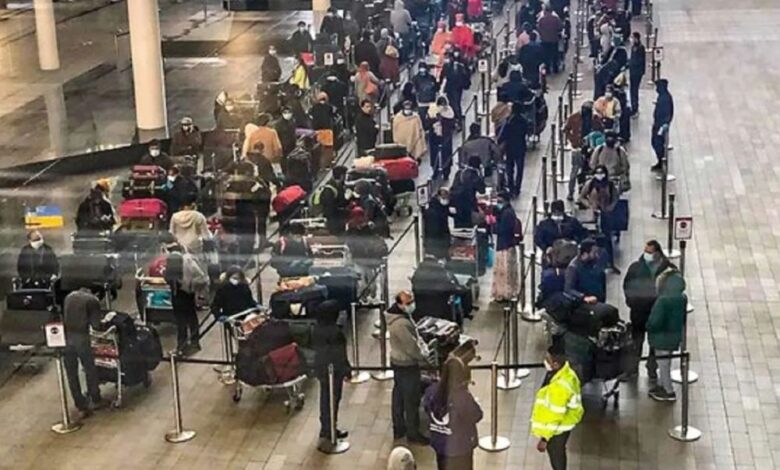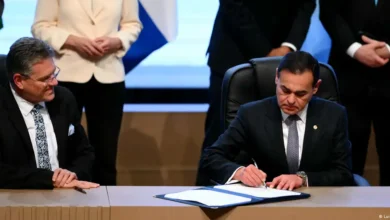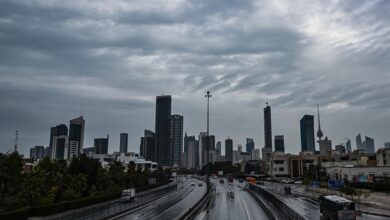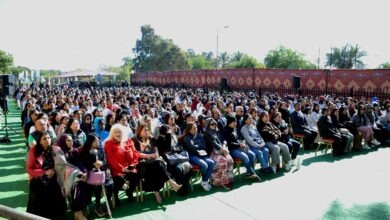Positive impact of migration on society
Migrants are not a problem to be solved, they are a reality to be managed

THE TIMES KUWAIT REPORT
Since the start of human evolution, migration has been an integral component to the progress of humanity. The search for safety and shelter from predators and inclement weather; the quest for a decent livelihood; for better food for their families and fodder for cattle, have driven people from their origins to distant places, often against overwhelming odds and seemingly insurmountable obstacles.
Over the ages, people have continued to migrate all over the world, and the drivers of these exoduses have remained much the same — safety, shelter and a better life and livelihood. Today, humanity is still on the move; in search of work or economic opportunity that promises a better life, to seek safety from conflicts, orchestrated persecutions, or human rights violations. Others move to avoid the deleterious effects of climate change, natural disasters or environmental calamities.
The United Nations defines an international migrant as ‘any person who has changed his or her country of residence. This includes all migrants, regardless of their legal status, or the nature, or motive of their movement’. Currently, more people than ever live in a country other than the one in which they were born. The world needs to realize that rather than being a challenge to be addressed, global migration is a reality that needs to be managed.
Although many people today migrate voluntarily, millions of others are forced to migrate out of necessity, becoming refugees in other parts of their own country, or across the border in other nations. The United Nations Refugee Agency (UNHCR) estimated that, by the end of 2022, the world hosted an estimated 35.3 million refugees, including 5.9 million Palestine refugees under the mandate of the United Nations Relief and Works Agency (UNRWA), as well as 5.4 million asylum-seekers.
Established in 1951, the International Organization of Migration (IOM) is the leading UN entity concerned with global migration. IOM works to ensure the orderly and humane management of migration, to promote international cooperation on migration issues, to help find practical solutions to challenges of migration, and to provide humanitarian assistance to migrants in need, including to refugees and internally displaced people.
In 2018, at an intergovernmental conference on migration held in Marrakesh, Morocco, UN member states adopted the Global Compact for Safe, Orderly and Regular Migration (GCM), an international agreement that covers all aspects of migration in a comprehensive manner. The GCM is also a non-binding document that respects the sovereign right of states to determine who enters and stays in their territory.
Despite being a signatory to the GCM since 2018, Kuwait does not countenance economic- or humanitarian-migrants. The nearly 2.5 million migrant workers in Kuwait are considered as ‘Temporary Contract Workers’ (TCWs), and the legal framework governing their employment and stay in Kuwait is based on the 1959 Aliens Residence Law that links all TCWs to a sponsor through the ‘kafala’ system.
The kafala system has been criticized for its proneness to exploitative practices, and although TCWs, with the exception of domestic workers, are covered by the state’s labor laws, the existence of the kafala system restricts labor mobility. With labor being a key factor in production, the lack of labor mobility affects productivity as well as hampers the country’s economic growth and development.
However, in all fairness, it needs to be added that Kuwait has adopted a number of laws to protect the rights of TCWs. For instance, in 2010, the government introduced new provisions to the existing private sector labor law that increased the minimum wage for TCWs, set overtime pay rates, and increased holiday credits in annual leave computations.
In 2013, the country also adopted Law No. 91/2013 on Trafficking in Persons and Smuggling of Migrants that seeks to eradicate these practices in Kuwait. In 2015, the Ministry of Interior also established an anti-human trafficking department to act as the national coordinating body on human trafficking issues. And, in a proactive move, the Ministry of Justice developed in 2016 a Counter-trafficking strategy.
And, in 2015, Kuwaiti legislators adopted Law No. 69/2015 that gave domestic workers enforceable labor rights, including 30 days of annual paid leave, end of service benefits, a 12-hour working day with rest periods, and a weekly day off, among others. In addition, the government set up shelters for domestic workers and victims of trafficking that provides them with accommodation and food, as well as medical and legal assistance.
Migration is important to global growth; empirical studies by international organizations such as the United Nations, the World Bank, and the International Labor Organization (ILO) have all reiterated the multifaceted, positive impacts of migrants and migration on host communities and on source nations. Contrary to popular opinion in many host nations, migrants are not a drain on national resources.
A study on the fiscal impact of migration in all the Organization of Economic Cooperation and Development (OECD) countries in Europe, as well as in Australia, Canada, Japan and the United States, show that in most countries migrants contribute more in taxes and social contributions than they receive in individual benefits. Even low-educated immigrants were found to have a better fiscal position — the difference between their contributions and the benefits they receive — than their native-born peers.
Migrants have also been found to form a fundamental pillar of global development and prosperity. A study by McKinsey Global Institute estimates that migrants contributed roughly USD6.7 trillion, or 9.4 percent, to global GDP in 2015 — around $3 trillion more than they would have produced in their origin countries. North America captured up to $2.5 trillion of this output, while up to $2.3 trillion went to Western Europe.
Some of the areas where migrants contribute to the economy of a host nation include in filling labor shortages in key sectors like healthcare, agriculture, and construction, as well as in providing public services that many nationals are reluctant to take up. Migrants also contribute to economic growth through their consumption of goods and services that stimulate local businesses and industries.
Additionally, migrants bring with them a range of skills, experience, and knowledge, as well as entrepreneurial acumen that contributes to boosting productivity and competitiveness in host economies. Migrants and migration is also an important factor in balancing population decline and maintaining the workforce needed to ensure the viability of social security systems.
According to data from the Population Division of the United Nations Department of Economic and Social Affairs (UNDESA), as of the second-half of 2020 there were an estimated 281 million international migrants around the world, comprising 3.5 percent of the global population. The ratio of international migrants has been on the rise over the decades, going from 2.3 percent of the world population in 1980 to 2.8 percent by 2000.
Other statistics from the UNDESA reveal that over 48 percent of international migrants were women and girls; around three-quarters of migrants were aged between 20 and 64 years; and that 41 million international migrants were under the age of 20. The figures also show that most international migrants reside in Asia and Europe (31% each), followed by Northern America (21%), Africa (9%), Latin America and the Caribbean (5%) and Oceania (3%).
In early January of this year, the IOM launched its first-ever Global Annual Appeal for 2024, urging for a funding of $7.9 billion to pave the way for a system that harnesses migration’s potential as a positive force across the globe. The funding seeks to fortify the ability of IOM to save lives, protect people on the move, address displacement, and facilitate safe pathways for regular migration. A cause worth funding for its humanitarian aspects, as well as its positive impacts on society.












